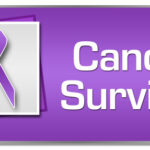How to Spot the Early Warning Signs of Serious Diseases

Spotting the early warning signs of serious diseases is crucial for timely diagnosis and treatment. Keep in mind that the specific signs and symptoms can vary widely depending on the disease, so it’s essential to pay attention to any changes in your body and seek medical advice if you notice anything unusual. Here are some general guidelines to help you spot early warning signs:
- Regular Health Checkups:
- Schedule regular checkups with your primary care physician or healthcare provider. Routine screenings and physical examinations can help detect potential problems before they become serious.

- Know Your Family History:
- A family history of certain diseases, such as cancer, heart disease, diabetes, and autoimmune disorders, can increase your risk. Discuss your family’s medical history with your healthcare provider, as it can guide early detection efforts.
- Pay Attention to Changes in Your Body:
- Be vigilant about any unusual or persistent symptoms, such as pain, fatigue, unexplained weight loss, changes in bowel or bladder habits, or skin changes.
- Watch for Warning Signs:
 Many serious diseases have specific early warning signs. Familiarize yourself with these signs, which can include:
Many serious diseases have specific early warning signs. Familiarize yourself with these signs, which can include:
- Chest pain or discomfort can be a sign of various conditions, including heart disease, lung problems, or digestive issues
- Frequent or unexplained episodes of nausea or vomiting can be a symptom of various illnesses, including gastrointestinal issues or infections
- Persistent cough or hoarseness that does not seem to improve can be a warning sign of respiratory infections, allergies, or chronic lung diseases
- Spotting blood in urine or stool when using the toilet can indicate serious conditions in the digestive or urinary systems and should not be ignored
- Shortness of breath or difficulty breathing can be a sign of lung disease, heart problems, or other respiratory conditions
- Severe headaches (migraines, brain tumors)
- Non-Healing Wounds: Wounds that do not heal or show signs of infection may be a sign of underlying health problems, such as immune disorders or diabetes
- Persistent or severe abdominal pain may indicate underlying digestive diseases or other serious conditions
- Significant and unexplained weight loss or gain can be a symptom of various health issues, such as hormonal disorders or cancer
- Drastic changes in appetite, such as a loss of appetite or increased hunger, can be a sign of underlying health problems, including metabolic disorders or mental health issues
- Persistent fatigue or weakness that affects your daily activities can be a symptom of several diseases, such as autoimmune disorders or chronic infections
- Read more >>>
- Monitor Your Vital Signs:
- Regularly check your blood pressure, heart rate, and body temperature. Abnormal readings can be indicative of underlying health issues.

- Keep Track of Your Diet and Lifestyle:
- Maintain a healthy diet, engage in regular exercise, and manage stress. These lifestyle factors can influence your risk of various diseases.
- Be Mindful of Family and Personal History:
- If you have a family history of a particular disease or if you’ve had a previous diagnosis, work closely with your healthcare provider to monitor and manage your health accordingly.
- Get Screened:
- Follow recommended screening guidelines for your age, gender, and risk factors. This might include mammograms, colonoscopies, Pap smears, and prostate exams.
- Stay Informed:
- Keep up with the latest health information and guidelines. Knowledge of risk factors, early signs, and preventive measures can be empowering.
- Trust Your Instincts:
- If you feel that something is not right with your health, don’t hesitate to seek medical advice. Early detection can make a significant difference in the outcome of many diseases.
Remember that early detection does not guarantee prevention, but it greatly improves the chances of successful treatment and management of serious diseases. Consult with your healthcare provider for personalized advice and guidance on maintaining your health and managing your risk factors.



